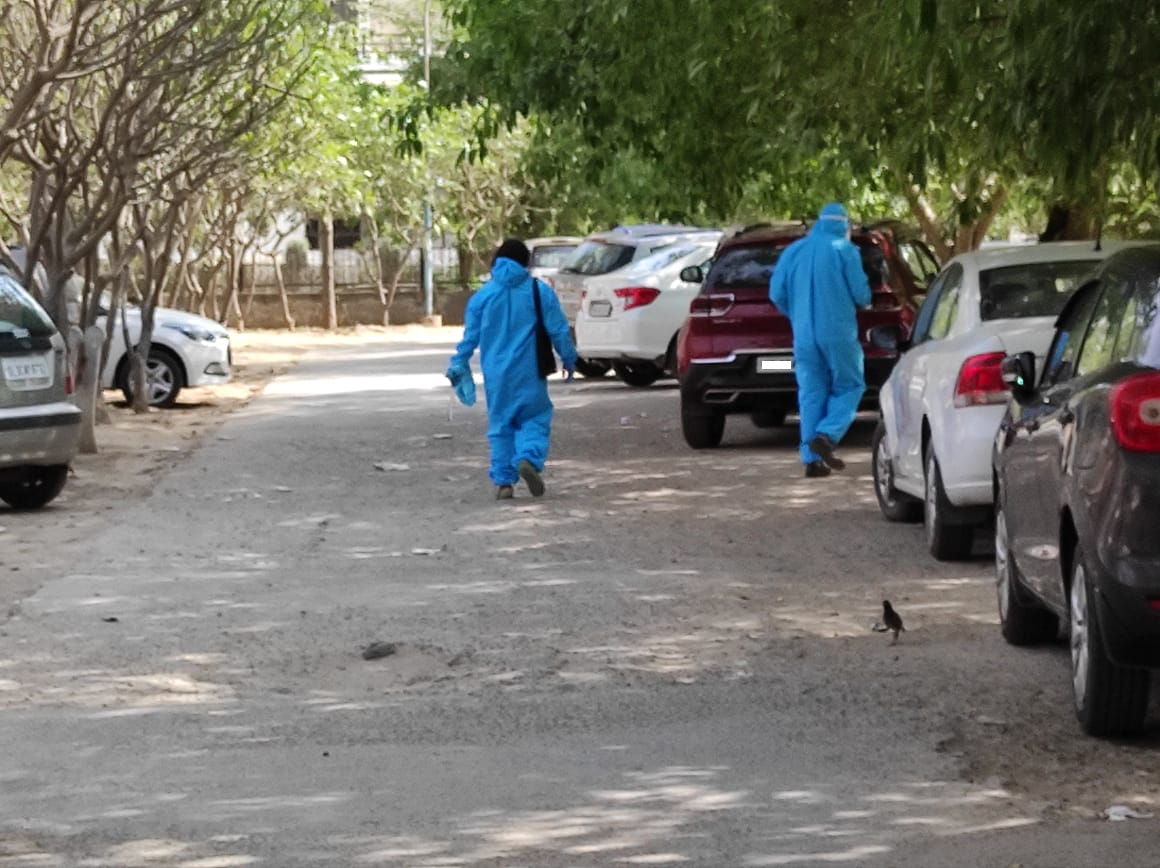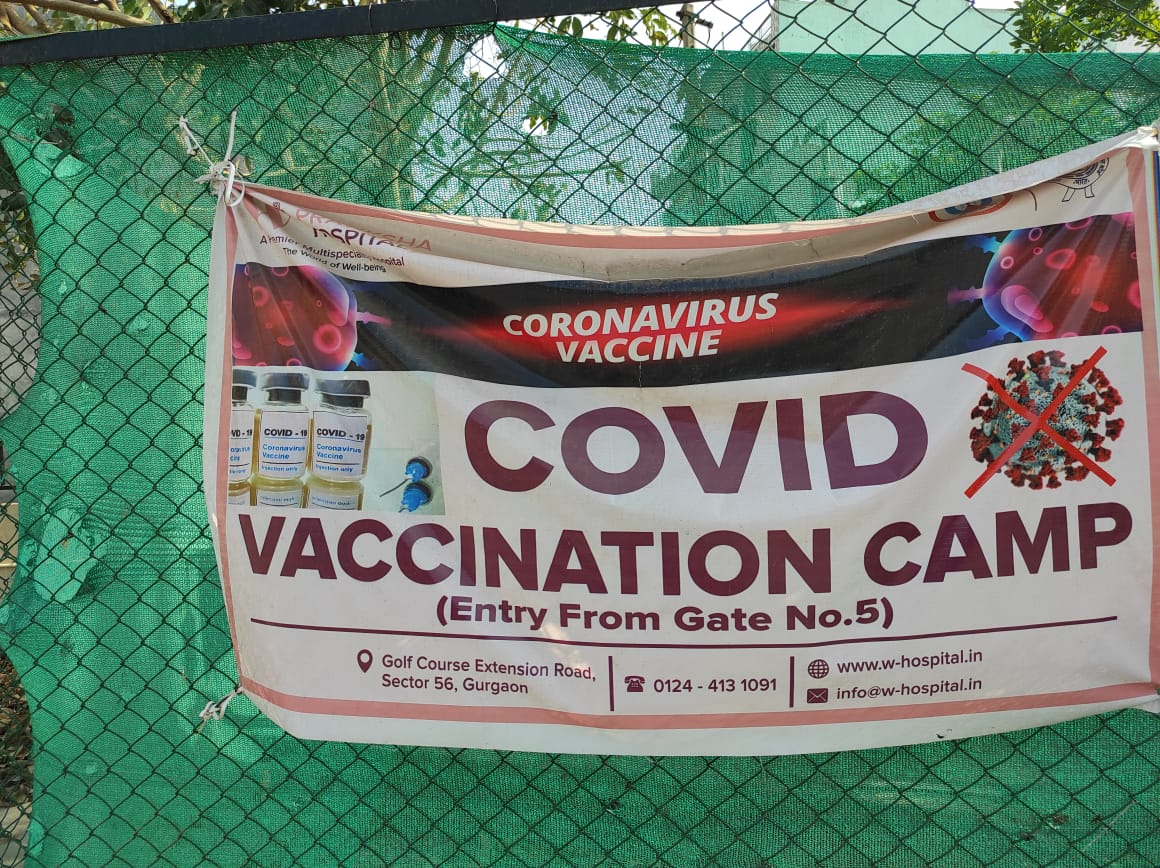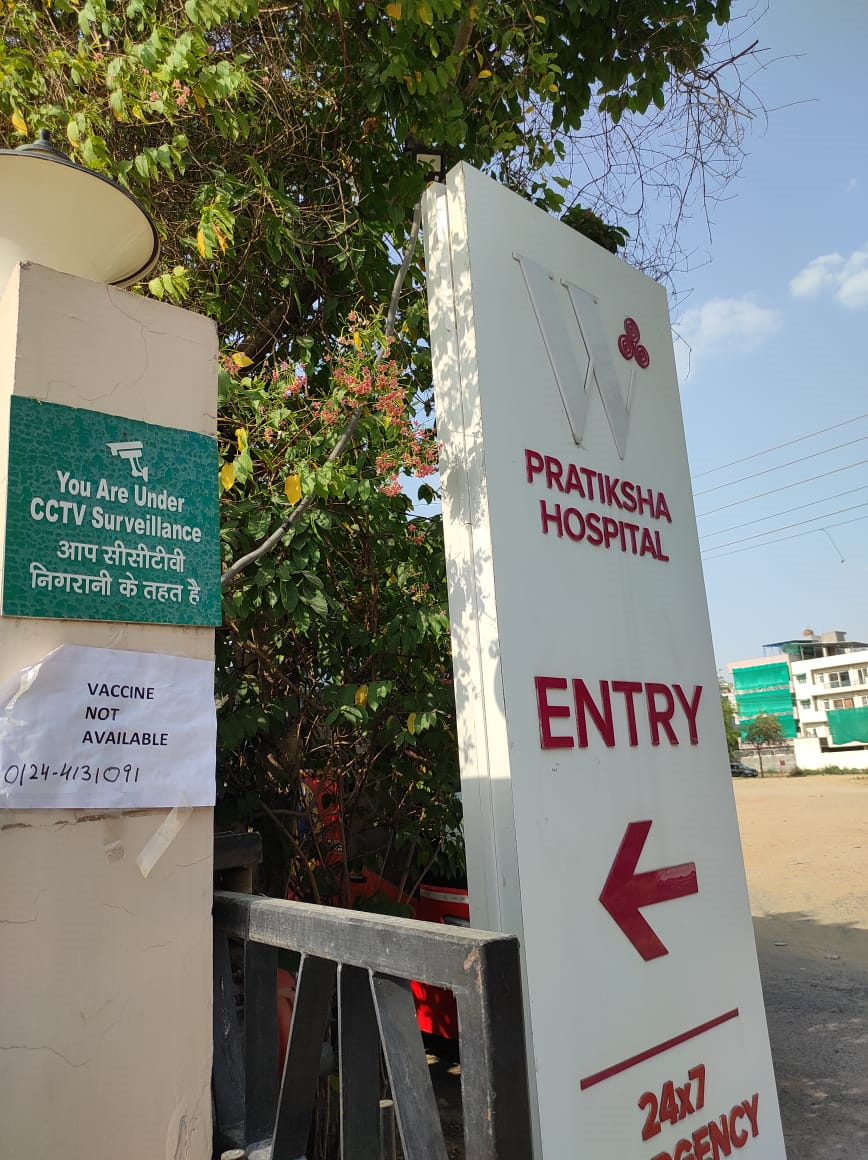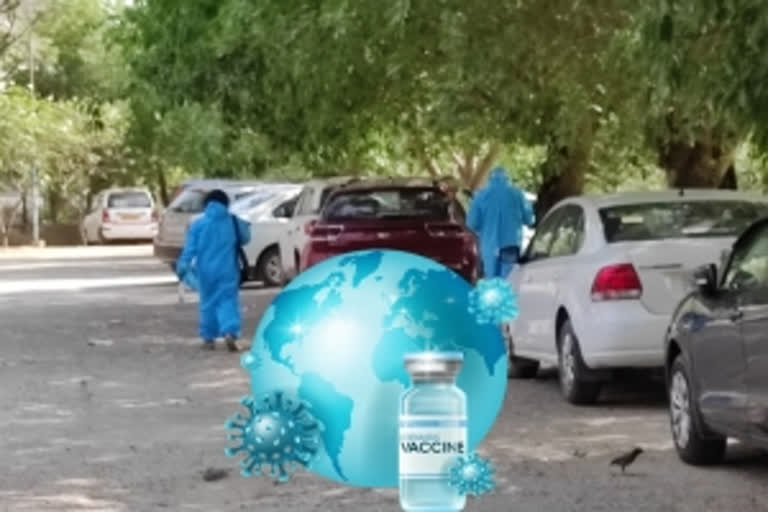New Delhi: India's middle class, estimated to be around 300-350 million in size, is desperate to get the COVID vaccines as the ferocious second wave continues to ravage the country with over 4,00,000 confirmed daily cases and 4,000 reported deaths due to new strains of novel coronavirus in last few days.
It caught the middle class, despite being technology and information savvy, completely unprepared to deal with the unfolding crisis as it failed to anticipate and protect itself from the virus, which went on a killing spree across Indian cities and now threatens its hinterland.

The highly infectious new strains have killed more than 90,000 people since the end of February this year when the COVID death toll was 1.57 lakh people, which has now crossed to more than 2.50 lakh deaths as on May 10.
The new strains have killed more than 80,000 people in the last 30 days, making people desperate for vaccines.
A large number of Indian middle-class families, who have delayed taking their COVID shots when it was opened for senior citizens on March 1 and for the people above 45 years of age on April 1, are desperate to book the slots on the nationwide vaccination portal CoWin.

ETV Bharat came across a curious case last week when a middle-aged couple in upmarket Gurugram city in the capital Delhi’s neighbourhood turned up at the main civil hospital donning a PPE kit for the COVID shot.
The couple wanted to avoid any possibility of COVID infection while venturing out to get the vaccine and bought the PPE kit the same day after checking with the national COVID helpline number 1075 that they can walk-in and get the vaccine at the civil hospital.
Also Read: Only 18 crore people vaccinated in India so far
However, the vaccination officer turned them down citing the new rules that came into force from May 1 under which getting a vaccine at the hospital was only possible by booking a slot on the national vaccination portal in advance.
One of the vaccination officers also inquired about the couple’s age and criticised the husband for his complacency, as despite being over 45 years of age, he did not care to take the vaccine for more than a month when it was opened for the age group and only considered vaccination in early May when the second COVID wave raged across the country.
“Had you taken the vaccine a month ago when it was opened for your age group, it would have benefitted you,” the vaccination officer told the husband when he confirmed that he was above 45 and the wife had also turned 45 sometime back.

However, the entire exercise of buying the PPE kits and reaching the vaccination centre turned out to be futile, leaving them desperate to get the vaccine and they returned unsuccessful.
Their case highlights the complacency of the Indian middle class, as highlighted by the vaccination officer who bluntly told them about their laxity, underscoring the fact that the central government’s decision to open the vaccination for 18-44 years group has expanded the eligible candidates and has made it to even more difficult to book the slots.
Status report of vaccination
ETV Bharat’s team also surveyed five medium and big private hospitals and clinics located in different parts of the city.
All these hospitals were offering COVID vaccines till the end of last month but ran out of stocks and were turning down anyone seeking either the first or second dose of the COVID vaccines.
These hospitals simply put up notices at their gates and counters about the unavailability of vaccines and no vaccination officer was present to help the people seeking the jabs.
As per the latest information available on the national vaccination portal CoWin, only two private hospitals in the city were offering paid vaccines. While Max Hospital was offering Covishield for Rs 900 a dose, Fortis Memorial Research Institute was offering Covaxin for Rs 1250 a dose.
Also Read: Centre in SC justifies COVID vaccination policy, says no room for judicial intervention
In Gurugram, free vaccines were available in several government health care centres.
In Delhi, the paid vaccines were available in several hospitals and free vaccines at government hospitals were also available across Delhi.
In Noida, another upmarket satellite town in Delhi’s neighbourhood, only three private hospitals were offering paid vaccines on Tuesday.
In Mumbai, the country’s financial capital, several hospitals offered paid vaccines but slots were not available.
Similarly, a search in the CoWin portal for the availability of vaccine slots in southern cities like Hyderabad and Bengaluru showed that all the slots were booked but in the case of Chennai, the capital of Tamil Nadu, paid vaccination slots in a private hospital were available on Tuesday.
Lack of vaccines with corporate hospitals was also an issue with upmarket middle-class people as they prefer large private hospitals over primary healthcare centres or government hospitals.
Two factors behind the desperation
There are two reasons for the desperation of the middle-class, first, there was strong vaccine hesitancy about its efficacy and side effects.
The middle-class educated people thought it to be opportune to wait and watch rather than taking the jab when footfalls at the vaccination centres were still low in March and April.
Their hesitancy was reinforced by the media reports about Oxford-AstraZeneca's vaccine, which is produced and sold in India as Covishield, causing rare blood clots in some patients in several European countries, forcing some EU countries to suspend its use.
Also Read: Over 14L beneficiaries in 18-44 age group have received Covid vax
However, the unprecedented collapse of medical infrastructure in cities, where a large number of middle-class people failed to get admission or ICU beds for their family members and relatives, forcing them to arrange oxygen cylinders, concentrators and life-saving drugs from outside formal channels at exorbitant prices, changed their vaccine hesitancy into vaccine desperation.
These middle-class, upper-middle-class families were, sometimes, seen driving for 50-100 kilometres in their SUVs and big cars, just to arrange an oxygen cylinder or its refill, that too with a very low rate of success in either getting the oxygen or saving the patients.
Vaccine hesitancy proved costly
A survey conducted by the community networking platform LocalCircles in November last year showed that out of 25,000 participants, only 8% were willing to take the vaccine as soon as it became available but a majority of participants, nearly 60% said they would not rush to take the vaccine.
While 28% of respondents said they would wait for 3-6 months, 13% said they would wait for 6-12 months, 7% said they would not take the vaccine in 2021 and would only consider it in 2022.
While 11% of the participants said they couldn't say anything or decide about the vaccination, an equal number of participants said they would take the vaccine only when it is provided through a private healthcare channel, reflecting their lack of confidence in the public healthcare system.
Also Read: Indians line up for vaccines as virus batters country



